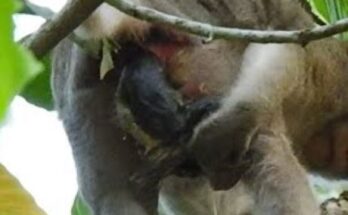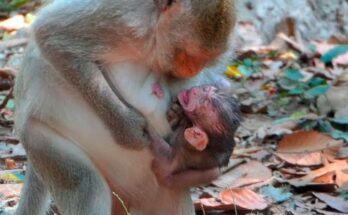In the animal kingdom, the bond between a mother and her offspring is vital for survival, particularly in primates. Baby monkeys often form a deep attachment to their mothers, relying on them for nourishment, protection, and social learning. However, as part of natural development, mother monkeys eventually begin to wean their young, sometimes leading to dramatic and emotional interactions.
When a mother monkey stops allowing her baby to nurse, it can result in loud, distressed cries from the infant. These screams are not uncommon and serve as an expression of frustration and a plea for continued comfort. The mother’s decision to restrict nursing isn’t out of cruelty but a necessary step in the weaning process. Weaning is critical for both the mother and the baby. It allows the mother to conserve energy, especially if she is pregnant again, and it encourages the baby to become more independent and learn to forage for solid food.
From the baby’s perspective, being denied milk can feel confusing and upsetting. Their cries might seem heartbreaking to human observers, but they are an essential part of their communication repertoire, signaling their need for attention or distress. In some cases, the mother might ignore these cries to reinforce the transition, while in others, she may offer comfort in other ways, such as grooming or staying close.
This natural process can appear harsh, but it reflects the delicate balance of survival in the wild. Weaning teaches the baby monkey to adapt, explore new food sources, and integrate with its social group. Over time, the baby will develop the skills needed for independence, a critical milestone in its growth. The mother’s firm approach ensures the young primate’s readiness for the challenges of its environment.
4o


